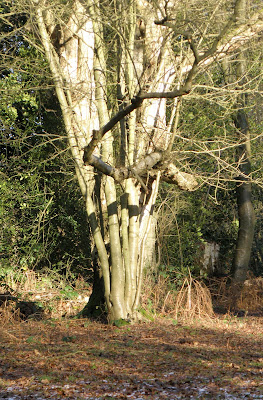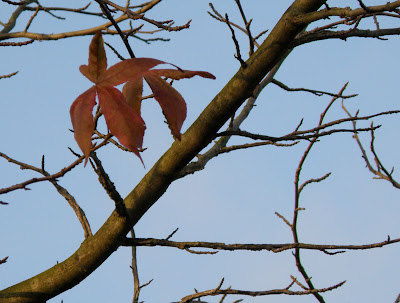

Vents and exits 2.
.
It's probably true to say that as you get older, you tend to find less to laugh about. It is certainly rare for me to erupt into laughter in response to what I am reading, as I do last night. I am reaching the moment when my eyes are becoming heavy and I know that I will soon close the book and go to sleep. The book is The Promise of Dawn by Romain Gary. It is his autobiography and consists largely of a portrait of his Russian mother, who brought him up on her own and saw him through school and university, with extraordinary and one might say eccentric devotion. Throughout his childhood and subsequently his adult life, he is driven by the romantic visions which she entertained about his future life and which she vividly proclaimed to him.
The year is 1938. He and his mother are living in Nice, still Russian citizens, but both in love with France, its history and its culture. He has just returned from college and looks forward to spending the heatwave month of August at home by the sea. But his mother has other ideas for him. "You are going to kill Hitler," she tells him. She had convinced herself that, having ensured that he is both a good fencer and good shot, he will have no difficulty in pulling off the assassination. If they catch him, she tells herself, France, England and America will prevail upon Germany to release him. Obediently and reluctantly, he borrows a coat from a friend which is too large for him and therefore capable of concealing a firearm. His mother has already acquired the rail tickets to Berlin. As he is preparing to leave, he reads in the paper that the Fuehrer is spending the month of August in Berchtesgarden, and remarks to himself that it will be far more comfortable for him to shoot the dictator in the cool mountain air. He is about to say farewell to his mother when she breaks down and, regardless of it being her own idea, begs him not go. "But I have the tickets," he says. "Don't worry about that," she replies, "I can get a refund".
I have to tell Heidi why I am laughing. And I have to go on reading. And I don't get to sleep for at least another hour.
.
In Waterstone's bookshop this morning, a man called Stephen Welch, whom I have never met, hands me a bookmark. It is an advertisement for a book called Stardust - Our Cosmic Origins. "I am doing a book-signing", he says, indicating a table where dozens of copies of the paperback are optimistically displayed. I am sympathetic and interested but can't muster much enthusiasm. And I feel awkward about opening the book with him looking on. But curiosity wins and I look inside. Encouraged, he says : " A lot of science books go deep into a single aspect of a subject. I do just the opposite. I draw all the facts together and come to a conclusion. It is more philosophy really".
I don't know what to say, but notice a sentence, in which he writes that Shelley is his favorite poet. "Shelley would have liked it," I say. "Shelley is my favorite poet, " he says. "I know, " I say. I have just read what you wrote. I leave, wondering if I have been as diplomatic as I intended to be.





















 bear it, to be vexed and fretted by it, as is the case with me, is another kind of disease that is hardly less troublesome, and of this I am now going to accuse myself". And I accuse myself with him!. The Best of Now, in pursuit of beautiful, interesting and amusing things, is designed to exclude, for the most part, incidents of stupidity and its impact on our daily lives. But sometimes it is hard. Thank you , Montaigne, for your understanding. What a marvelous blog you would have written. But then, in a sense, you did.
bear it, to be vexed and fretted by it, as is the case with me, is another kind of disease that is hardly less troublesome, and of this I am now going to accuse myself". And I accuse myself with him!. The Best of Now, in pursuit of beautiful, interesting and amusing things, is designed to exclude, for the most part, incidents of stupidity and its impact on our daily lives. But sometimes it is hard. Thank you , Montaigne, for your understanding. What a marvelous blog you would have written. But then, in a sense, you did.



